 Nicholas Traugutt, I am a Ph.D. candidate in Mechanical Engineering at the University of Colorado Denver under the tutelage of Prof. Chris Yakacki. My research focuses on how to tailor bulk liquid crystal elastomer (LCE) structures across different length scales (e.g. meso, micro, and macro) to better dissipate mechanical energy. In the course of my research, I have discovered several different molding and manufacturing techniques through the use of additive manufacturing as well as helping to improve synthetic methods for the thiol-acrylate LCE chemistry. One of my greatest achievements to date includes creating a scalable and tailorable method to use digital light processing to 3D print LCE structures that would otherwise be difficult to impossible to fabricate.
Nicholas Traugutt, I am a Ph.D. candidate in Mechanical Engineering at the University of Colorado Denver under the tutelage of Prof. Chris Yakacki. My research focuses on how to tailor bulk liquid crystal elastomer (LCE) structures across different length scales (e.g. meso, micro, and macro) to better dissipate mechanical energy. In the course of my research, I have discovered several different molding and manufacturing techniques through the use of additive manufacturing as well as helping to improve synthetic methods for the thiol-acrylate LCE chemistry. One of my greatest achievements to date includes creating a scalable and tailorable method to use digital light processing to 3D print LCE structures that would otherwise be difficult to impossible to fabricate.
In my downtime on campus from researching LCEs, I am often tinkering with 3D printers. My knowledge and abilities with 3D printing led to an opportunity to work as a consultant for 3D printing PEEK, and I have success with 3D printing other engineering polymers such as PPSU.
I currently have six peer-reviewed papers, including a recent publication in Advanced Materials for DLP printing LCEs.


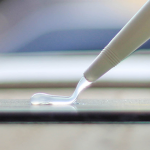



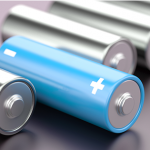

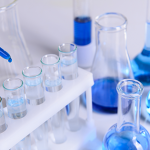
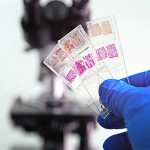
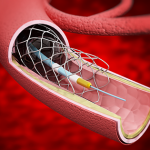
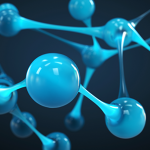
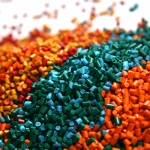
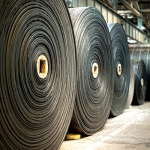

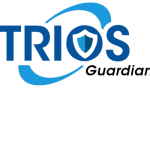


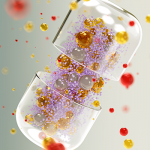
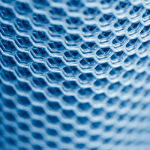
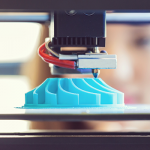
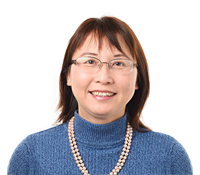 Tianhong (Terri) Chen, Ph.D. is a Senior Applications Support Scientist with TA Instruments currently supporting the Rheology and DMA product lines. She received her PhD degree in Polymer Science from Sun Yat-sen University (SYSU) in China, specializing in polymer synthesis and characterization. She did her post-doc research and later became a research assistant professor at the University of Maryland. During that time, her research was focused on biopolymer modifications and analysis. Dr. Chen joined TA Instruments in 2004. Her key responsibilities at TA Instruments are customer support, consultation, and teaching DMA and rheology training courses. Dr. Chen has more than 50 publications in peer-reviewed journals and two US patents.
Tianhong (Terri) Chen, Ph.D. is a Senior Applications Support Scientist with TA Instruments currently supporting the Rheology and DMA product lines. She received her PhD degree in Polymer Science from Sun Yat-sen University (SYSU) in China, specializing in polymer synthesis and characterization. She did her post-doc research and later became a research assistant professor at the University of Maryland. During that time, her research was focused on biopolymer modifications and analysis. Dr. Chen joined TA Instruments in 2004. Her key responsibilities at TA Instruments are customer support, consultation, and teaching DMA and rheology training courses. Dr. Chen has more than 50 publications in peer-reviewed journals and two US patents. Malin Suurkuusk is the Isothermal Calorimetry Product Manager / Application Specialist at TA Instruments. She holds a Masters of Science Degree in Biochemistry from Stockholm University, and a PhD from the University of Lund where she studied in the lab of Prof. Ingemar Wadsö. She has worked extensively with Differential Scanning Calorimetry and Isothermal Titration Calorimetry, as well as other biophysical methods. Her early work in microcalorimetry instrument development included responsibilities in product management, applications lab management and marketing at Thermometric in Sweden. She is considered the world’s leading expert on the TAM isothermal instruments with numerous microcalorimetry publications. In October of 2014 she was recognized for her contributions to the field of microcalorimetry, and featured as a Biophysicist in Profile by the Biophysical Society.
Malin Suurkuusk is the Isothermal Calorimetry Product Manager / Application Specialist at TA Instruments. She holds a Masters of Science Degree in Biochemistry from Stockholm University, and a PhD from the University of Lund where she studied in the lab of Prof. Ingemar Wadsö. She has worked extensively with Differential Scanning Calorimetry and Isothermal Titration Calorimetry, as well as other biophysical methods. Her early work in microcalorimetry instrument development included responsibilities in product management, applications lab management and marketing at Thermometric in Sweden. She is considered the world’s leading expert on the TAM isothermal instruments with numerous microcalorimetry publications. In October of 2014 she was recognized for her contributions to the field of microcalorimetry, and featured as a Biophysicist in Profile by the Biophysical Society. Jason Saienga is currently the Product Manager for the Thermal Analysis and Thermal Conductivity product lines at TA Instruments. Jason joined TA in 2006 after completing his doctorate program in Materials Science and Engineering at Iowa State University. Jason started out his career at TA in the applications lab teaching the theory and applications lectures, instrument hands-on courses, and providing customer and sales support for the thermal analysis techniques. As Product Manager, Jason and his team work to define and coordinate of the future of thermal analysis and thermal conductivity product lines at TA.
Jason Saienga is currently the Product Manager for the Thermal Analysis and Thermal Conductivity product lines at TA Instruments. Jason joined TA in 2006 after completing his doctorate program in Materials Science and Engineering at Iowa State University. Jason started out his career at TA in the applications lab teaching the theory and applications lectures, instrument hands-on courses, and providing customer and sales support for the thermal analysis techniques. As Product Manager, Jason and his team work to define and coordinate of the future of thermal analysis and thermal conductivity product lines at TA. Justin Wynn is an Application Engineer for Thermophysical Properties at TA Instruments. As an Application Engineer, he provides primary support on the thermophysical product line, which includes thermal conductivity meters, flash diffusivity analyzers and dilatometers. He performs demonstrations and conducts feasibility tests to characterize a bevy of samples with appropriate data analysis, and provides application specific test protocol development support. Prior to joining TA Instruments in 2016, he earned his Bachelor’s degree in Biomedical Engineering from the University of Delaware. While there, he assisted in an independent study that involved comparative study of motion in human subjects. His senior capstone project revolved around the development of safety tools to be used in hospital operating rooms.
Justin Wynn is an Application Engineer for Thermophysical Properties at TA Instruments. As an Application Engineer, he provides primary support on the thermophysical product line, which includes thermal conductivity meters, flash diffusivity analyzers and dilatometers. He performs demonstrations and conducts feasibility tests to characterize a bevy of samples with appropriate data analysis, and provides application specific test protocol development support. Prior to joining TA Instruments in 2016, he earned his Bachelor’s degree in Biomedical Engineering from the University of Delaware. While there, he assisted in an independent study that involved comparative study of motion in human subjects. His senior capstone project revolved around the development of safety tools to be used in hospital operating rooms. Yash Adhia is a Senior Applications Support Engineer at TA Instruments supporting the thermal and rheology line of products. Prior to joining TA Instruments, he earned his Master’s in Macromolecular Science and Engineering from the University of Michigan, Ann Arbor. During his graduate studies, he worked on studying and characterizing gels formed through the self-assembly of small molecules and its interaction with polymeric additives using thermal, rheological and optical techniques. He earned his Bachelor’s in Surface Coating Technology from the Institute of Chemical Technology, Mumbai, India where his undergraduate research focused on studying curing kinetics of epoxy resins using DSCs. During the course of his undergraduate and graduate studies, he has had the opportunity to intern at Asian Paints India Ltd, Mumbai, working on formulating and characterizing photo-curable coatings, and at INOS Technologies, Ann Arbor working on negative pressure wound therapy foams.
Yash Adhia is a Senior Applications Support Engineer at TA Instruments supporting the thermal and rheology line of products. Prior to joining TA Instruments, he earned his Master’s in Macromolecular Science and Engineering from the University of Michigan, Ann Arbor. During his graduate studies, he worked on studying and characterizing gels formed through the self-assembly of small molecules and its interaction with polymeric additives using thermal, rheological and optical techniques. He earned his Bachelor’s in Surface Coating Technology from the Institute of Chemical Technology, Mumbai, India where his undergraduate research focused on studying curing kinetics of epoxy resins using DSCs. During the course of his undergraduate and graduate studies, he has had the opportunity to intern at Asian Paints India Ltd, Mumbai, working on formulating and characterizing photo-curable coatings, and at INOS Technologies, Ann Arbor working on negative pressure wound therapy foams.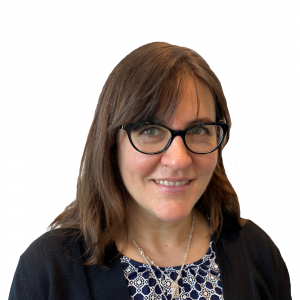 Dr. Cabovska holds a research degree in analytical chemistry and has over 10 years of experience in extractables and migration application. Dr. Cabovska is currently a senior business development manager at Waters Corporation, located in Milford, MA – USA where she actively collaborates with customers on providing comprehensive materials characterization solutions across extractables and migration testing applications. Before joining Waters, Dr. Cabovska focused her work on Bioanalytical method development and validations for therapeutic drug monitoring and extractable and leachable studies in packaging.
Dr. Cabovska holds a research degree in analytical chemistry and has over 10 years of experience in extractables and migration application. Dr. Cabovska is currently a senior business development manager at Waters Corporation, located in Milford, MA – USA where she actively collaborates with customers on providing comprehensive materials characterization solutions across extractables and migration testing applications. Before joining Waters, Dr. Cabovska focused her work on Bioanalytical method development and validations for therapeutic drug monitoring and extractable and leachable studies in packaging.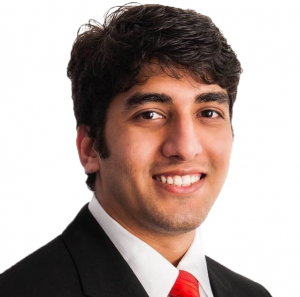 Muhammad Haris is Application Engineer for TA Instruments ElectroForce based near Frankfurt, Germany. He specialized in ElectroForce mechanical test instruments and engages with customers on their testing needs related to the application of ElectroForce products and puts forward broad-ranging solutions. He holds a master’s degree in Advanced Materials & Processes. Prior to joining TA Instruments, Haris has worked with Procter & Gamble for about 2 years on analytical development and characterization of electric shavers’ blades.
Muhammad Haris is Application Engineer for TA Instruments ElectroForce based near Frankfurt, Germany. He specialized in ElectroForce mechanical test instruments and engages with customers on their testing needs related to the application of ElectroForce products and puts forward broad-ranging solutions. He holds a master’s degree in Advanced Materials & Processes. Prior to joining TA Instruments, Haris has worked with Procter & Gamble for about 2 years on analytical development and characterization of electric shavers’ blades.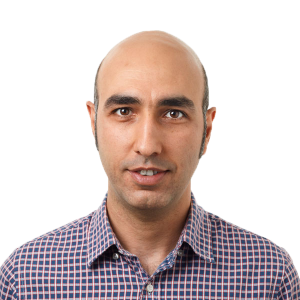 Sadegh Behdad is an Applications Engineer at TA Instruments, supporting ElectroForce product line. Sadegh has a PhD in Materials Science and Engineering from Florida International University. He earned his BSc and Masters in Polymer Engineering from Amirkabir University of Technology. Prior to joining TA Instruments, Sadegh worked as a Sr. Materials Scientist at Magic Leap. At Magic Leap, he supported material design and development teams on selection of material candidates and testing various materials and components for wearable virtual retinal display applications.
Sadegh Behdad is an Applications Engineer at TA Instruments, supporting ElectroForce product line. Sadegh has a PhD in Materials Science and Engineering from Florida International University. He earned his BSc and Masters in Polymer Engineering from Amirkabir University of Technology. Prior to joining TA Instruments, Sadegh worked as a Sr. Materials Scientist at Magic Leap. At Magic Leap, he supported material design and development teams on selection of material candidates and testing various materials and components for wearable virtual retinal display applications.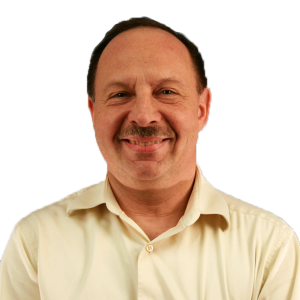 Greg Kamykowski Ph.D. is a Senior Applications Scientist for rheology for TA Instruments US West region. He has a BS in chemistry from Loyola University of Chicago and a PhD in physical chemistry from University of Wisconsin – Madison, where he studied under well-known rheologist, Professor John Ferry. He has published several articles, presented at various conferences and meetings, and is involved with the Society of Plastics Engineers, the Society of Rheology, and ASTM.
Greg Kamykowski Ph.D. is a Senior Applications Scientist for rheology for TA Instruments US West region. He has a BS in chemistry from Loyola University of Chicago and a PhD in physical chemistry from University of Wisconsin – Madison, where he studied under well-known rheologist, Professor John Ferry. He has published several articles, presented at various conferences and meetings, and is involved with the Society of Plastics Engineers, the Society of Rheology, and ASTM.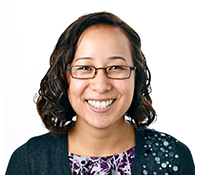

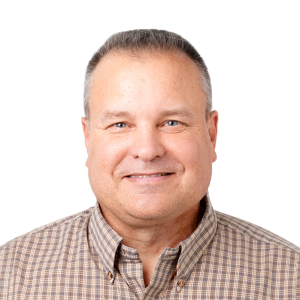 Jeff Lundstrom is the Product Manager for Software at TA Instruments. Jeff is a graduate of Colorado State University with a degree in Computer Science. He joined TA in 2005 as a Senior Software Engineer, specializing in Microsoft Windows technologies. He came to TA Instruments directly from Microsoft, where he was a Lead Software Developer for many years. As part of the product management team, Jeff actively collaborates with customers around the world, by providing software solutions for all TA Instruments’ applications. His areas of specialty include 21CFR11, where he was the primary software developer for this technology for TA Instruments, before moving to Product Management.
Jeff Lundstrom is the Product Manager for Software at TA Instruments. Jeff is a graduate of Colorado State University with a degree in Computer Science. He joined TA in 2005 as a Senior Software Engineer, specializing in Microsoft Windows technologies. He came to TA Instruments directly from Microsoft, where he was a Lead Software Developer for many years. As part of the product management team, Jeff actively collaborates with customers around the world, by providing software solutions for all TA Instruments’ applications. His areas of specialty include 21CFR11, where he was the primary software developer for this technology for TA Instruments, before moving to Product Management.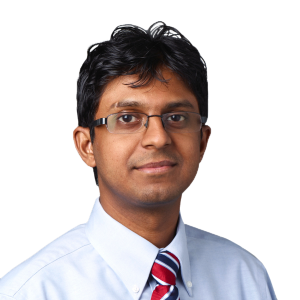 Bharath Rajaram, Ph.D. is a Product Specialist within the rheology group at TA Instruments with responsibility for rotational rheometers and DMAs. Dr. Rajaram earned his M.S. and Ph.D. in Chemical Engineering from the University of California, Irvine. Within the product management team, Dr. Rajaram combines his extensive experience in material characterization with feedback from customers to define and guide new product development.
Bharath Rajaram, Ph.D. is a Product Specialist within the rheology group at TA Instruments with responsibility for rotational rheometers and DMAs. Dr. Rajaram earned his M.S. and Ph.D. in Chemical Engineering from the University of California, Irvine. Within the product management team, Dr. Rajaram combines his extensive experience in material characterization with feedback from customers to define and guide new product development.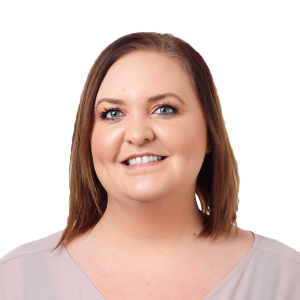 Calliste Reiling, Ph.D. is an Application Engineer at TA Instruments, currently supporting the microcalorimetry product line. She received her Ph.D. in Pharmaceutical Sciences from University of Nebraska Medical Center, where she investigated the thermodynamic properties of a variety of DNA and RNA secondary structures, their targeting reactions with partially complementary strands and the importance of water and ions. She also received her master’s from University of Nebraska Medical Center in Biochemistry and Molecular Biology with research centered around the structural biology of regulatory proteins involved in the endocytic pathway and their binding interactions. Calliste joined TA Instruments in 2018. Her key responsibilities at TA Instruments are customer support, consultation, and teaching microcalorimetry training courses.
Calliste Reiling, Ph.D. is an Application Engineer at TA Instruments, currently supporting the microcalorimetry product line. She received her Ph.D. in Pharmaceutical Sciences from University of Nebraska Medical Center, where she investigated the thermodynamic properties of a variety of DNA and RNA secondary structures, their targeting reactions with partially complementary strands and the importance of water and ions. She also received her master’s from University of Nebraska Medical Center in Biochemistry and Molecular Biology with research centered around the structural biology of regulatory proteins involved in the endocytic pathway and their binding interactions. Calliste joined TA Instruments in 2018. Her key responsibilities at TA Instruments are customer support, consultation, and teaching microcalorimetry training courses. Yue Schuman, Ph.D. is an Applications Scientist at TA Instruments supporting the thermal analysis product line. Prior to joining TA Instruments, Yue earned a Ph.D. degree in Mechanical Engineering from Villanova University and acquired her Master’s degree in Chemical and Biomolecular Engineering from the University of Pennsylvania. Yue’s research projects focused on thermal, mechanical, and structure-property characterizations of materials ranging from nanoscale to macroscale regimes including nanoparticle silica thin films, graphene, 3D graphene aerogel, paraffin-based phase change materials, and their composite materials. Yue’s core responsibilities at TA Instruments are customer support, method development for sample characterization, and providing training on our instruments.
Yue Schuman, Ph.D. is an Applications Scientist at TA Instruments supporting the thermal analysis product line. Prior to joining TA Instruments, Yue earned a Ph.D. degree in Mechanical Engineering from Villanova University and acquired her Master’s degree in Chemical and Biomolecular Engineering from the University of Pennsylvania. Yue’s research projects focused on thermal, mechanical, and structure-property characterizations of materials ranging from nanoscale to macroscale regimes including nanoparticle silica thin films, graphene, 3D graphene aerogel, paraffin-based phase change materials, and their composite materials. Yue’s core responsibilities at TA Instruments are customer support, method development for sample characterization, and providing training on our instruments. Dr. Chris Yakacki received his Ph.D. in mechanical engineering at the University of Colorado Boulder in 2007. During his graduate studies, he helped co-found Medshape, Inc. – a university-based startup focused on developing novel shape-memory devices. Dr. Yakacki worked as the principal scientist at Medshape from 2007-2011, during which time he helped clear the first shape-memory polymer devices through the USFDA. This includes the morphix suture anchor and exoshape anterior cruciate ligament (ACL) fixation device. He returned to academia in 2012 and joined the faculty at the University of Colorado Denver. He received the prestigious NSF Career Award to investigate liquid-crystal elastomers for biomedical applications. He has published over 50 peer-reviewed publications and raised over $2M in federally funded research. He is dedicated to once again translating his research from the university into the marketplace with Impressio – another university-based startup now focused on commercializing liquid-crystal elastomers.
Dr. Chris Yakacki received his Ph.D. in mechanical engineering at the University of Colorado Boulder in 2007. During his graduate studies, he helped co-found Medshape, Inc. – a university-based startup focused on developing novel shape-memory devices. Dr. Yakacki worked as the principal scientist at Medshape from 2007-2011, during which time he helped clear the first shape-memory polymer devices through the USFDA. This includes the morphix suture anchor and exoshape anterior cruciate ligament (ACL) fixation device. He returned to academia in 2012 and joined the faculty at the University of Colorado Denver. He received the prestigious NSF Career Award to investigate liquid-crystal elastomers for biomedical applications. He has published over 50 peer-reviewed publications and raised over $2M in federally funded research. He is dedicated to once again translating his research from the university into the marketplace with Impressio – another university-based startup now focused on commercializing liquid-crystal elastomers.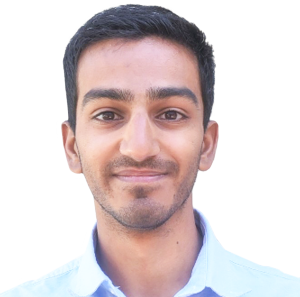 Dr. Devesh Mistry, my interests lie in the fundamental physics behind the mechanical properties of anisotropic and functionalised polymers. I completed my PhD in 2018 in the School of Physics and Astronomy at the University of Leeds, UK. Supervised by Professor Helen Gleeson, my PhD focused on unresolved inconsistencies in our knowledge of LCE mechanical behaviours. In this process I discovered the inherent negative Poisson’s ratio (auxetic) behaviour of LCEs.
Dr. Devesh Mistry, my interests lie in the fundamental physics behind the mechanical properties of anisotropic and functionalised polymers. I completed my PhD in 2018 in the School of Physics and Astronomy at the University of Leeds, UK. Supervised by Professor Helen Gleeson, my PhD focused on unresolved inconsistencies in our knowledge of LCE mechanical behaviours. In this process I discovered the inherent negative Poisson’s ratio (auxetic) behaviour of LCEs. Nicholas Traugutt, I am a Ph.D. candidate in Mechanical Engineering at the University of Colorado Denver under the tutelage of Prof. Chris Yakacki. My research focuses on how to tailor bulk liquid crystal elastomer (LCE) structures across different length scales (e.g. meso, micro, and macro) to better dissipate mechanical energy. In the course of my research, I have discovered several different molding and manufacturing techniques through the use of additive manufacturing as well as helping to improve synthetic methods for the thiol-acrylate LCE chemistry. One of my greatest achievements to date includes creating a scalable and tailorable method to use digital light processing to 3D print LCE structures that would otherwise be difficult to impossible to fabricate.
Nicholas Traugutt, I am a Ph.D. candidate in Mechanical Engineering at the University of Colorado Denver under the tutelage of Prof. Chris Yakacki. My research focuses on how to tailor bulk liquid crystal elastomer (LCE) structures across different length scales (e.g. meso, micro, and macro) to better dissipate mechanical energy. In the course of my research, I have discovered several different molding and manufacturing techniques through the use of additive manufacturing as well as helping to improve synthetic methods for the thiol-acrylate LCE chemistry. One of my greatest achievements to date includes creating a scalable and tailorable method to use digital light processing to 3D print LCE structures that would otherwise be difficult to impossible to fabricate. Thomas Paschke is the Application Specialist for the Rubotherm Series Thermal Analysis product line at TA Instruments. Thomas joined Rubotherm in 2013 and continued working in this position with TA after Rubotherm as acquired by TA in 2016. After obtaining his PhD in analytical chemistry, Thomas started his career as post-doc at the EERC (Energy & Environmental Research Center) at UND in Grand Forks, ND. Later he worked in different positions for the German company Axel Semrau with GC, GC/MS and high-pressure equipment. As Application Specialist, Thomas supports TA customers in finding the right instruments and methodologies for their challenging TGA applications under extreme conditions.
Thomas Paschke is the Application Specialist for the Rubotherm Series Thermal Analysis product line at TA Instruments. Thomas joined Rubotherm in 2013 and continued working in this position with TA after Rubotherm as acquired by TA in 2016. After obtaining his PhD in analytical chemistry, Thomas started his career as post-doc at the EERC (Energy & Environmental Research Center) at UND in Grand Forks, ND. Later he worked in different positions for the German company Axel Semrau with GC, GC/MS and high-pressure equipment. As Application Specialist, Thomas supports TA customers in finding the right instruments and methodologies for their challenging TGA applications under extreme conditions. Gray Slough is currently a product specialist in the Thermal Product group at TA Instruments. Dr. Slough received his BS in physics from the University of Texas at Austin in 1983 and his Ph.D. in condensed matter physics from the University of Virginia in 1990. He joined TA Instruments in 1998 as an applications scientist. Within the Thermal Product group he works to help define and develop the thermal analysis product line at TA, and provide technical support to both internal and external customers.
Gray Slough is currently a product specialist in the Thermal Product group at TA Instruments. Dr. Slough received his BS in physics from the University of Texas at Austin in 1983 and his Ph.D. in condensed matter physics from the University of Virginia in 1990. He joined TA Instruments in 1998 as an applications scientist. Within the Thermal Product group he works to help define and develop the thermal analysis product line at TA, and provide technical support to both internal and external customers.